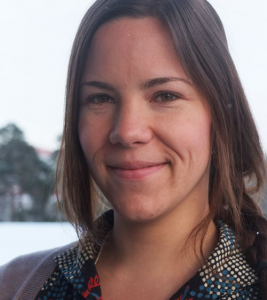Written by Johanna Warius, ERI alumna
While there seems t o be few issues challenging asylum seekers as the Hot Topic #1 in Finnish public debate, an increasingly un-nuanced image of ‘immigrants’, ‘refugees’ and ‘asylum seekers’ is emerging. It should go without saying that, as in any other group of people, there is plenty of variation within these categories.
o be few issues challenging asylum seekers as the Hot Topic #1 in Finnish public debate, an increasingly un-nuanced image of ‘immigrants’, ‘refugees’ and ‘asylum seekers’ is emerging. It should go without saying that, as in any other group of people, there is plenty of variation within these categories.
Health status and disability are two of the factors placing certain immigrant persons at an even bigger disadvantage than those who do not face these issues. The concept of minorities within minorities, or double minorities, is useful in this context. It describes how an immigrant person with a disability or a long-term illness has to endure and be able to solve challenges on two fronts.
Navigating the Finnish social services structure can be a battle for anyone, let alone for a person with lacking language and cultural skills. Add mapping, applying for and using disability services to the regular palette, and you’ll most likely be in need of specialised guidance.
This is what Hilma – the Support Centre for Immigrant Persons with Disabilities, a third sector actor located in East Helsinki, provides. At the Support Centre Hilma clients can get help in dealing with issues relating to public services, housing, employment, education and health care, etc. In short, the idea is to have one place from where you will not immediately be sent to the next counter. Our task is to gather the information and give the support needed to move forward in the situation at hand. Quite often we find that a good solution is available, but the client has not been aware of her or his rights or how to apply for the available services.
Although Finland has (at least up until recently) relatively well-working public services, they are often planned to be used by a rather homogeneous group. This is why Support Centre Hilma also does advocacy work in order to make sure that immigrants are taken into account in disability-specific services and that people with disabilities and long-term illnesses are not forgotten in immigrant integration services.
Finland can and should get a lot better at planning and providing services for its increasingly diverse population – whether we’re talking about ethnic origin, health, disability, gender, sexual orientation, religion or any other identity or personal quality.
An adequate understanding of diversity is undoubtedly key in effective advocacy for diversity-serving public services. Having had the privilege of studying these issues as one of the first ‘eriits’ when the programme was launched back in 2008, I trust I have the required expertise. The ERI programme provided the solid ground that I needed to work with human rights and equality issues in the third sector.
Johanna Warius is a coordinator at Hilma – the Support Centre for Immigrant Persons with Disabilities. She graduated from the ERI-programme in 2011 with a major in sociology.

